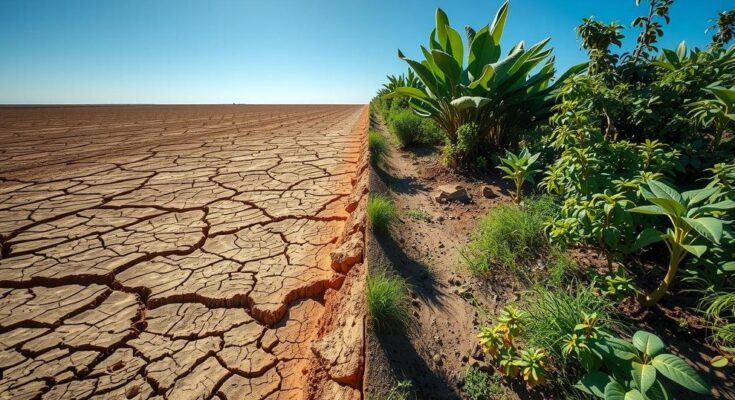Brazil is losing natural surface water significantly due to climate change and agricultural expansion, with a notable 400,000 hectares lost between 2023 and 2024. This is part of a larger trend of surface water loss, with the Amazon and Pantanal wetlands severely affected. Urgent water management strategies are necessary to reverse this declining trend.
Brazil, which possesses 12 percent of the world’s freshwater reserves, is experiencing a significant decrease in natural surface water due to climate change and agricultural land conversion. A recent report by the MapBiomas monitoring platform indicated that the country lost 400,000 hectares of aquatic surface from 2023 to 2024, an area comparable to the state of Rhode Island. In total, since 1985, Brazil has lost approximately 2.4 million hectares of river and lake surfaces primarily caused by drought, urban development, and excessive groundwater extraction.
Juliano Schirmbeck, the coordinator for the MapBiomas Agua report, highlighted that “the dynamics of land occupation and use, along with extreme climate events caused by global warming, are making Brazil drier.” He emphasized that these findings underscore the urgent need for adaptive water management strategies and policies to counteract these adverse trends in water availability.
The report is released in anticipation of Brazil hosting the COP30 UN climate conference in November in Belem, a significant event focused on climate action. Remarkably, nearly two-thirds of Brazil’s surface water is located in the Amazon, which plays a vital role in absorbing carbon dioxide and regulating the climate. However, the Amazon’s surface water area has diminished by 4.5 million hectares compared to 2022, an area the size of Denmark.
The Pantanal wetlands have suffered severely due to droughts and wildfires, with water surface levels in 2024 dropping to 61 percent below the average since 1985. While the area of artificial water bodies such as reservoirs and dams has increased by 54 percent since 1985, this expansion has not adequately compensated for the decline in natural freshwater resources.
The report indicates a troubling trend of water scarcity in Brazil, which is in stark contrast to its status as a holder of a significant portion of the world’s freshwater. The combined effects of climate change, land conversion, and poor water management require immediate attention and action. Without the implementation of effective water management policies, Brazil’s vital ecosystems and freshwater resources are at risk.
Original Source: www.bssnews.net




